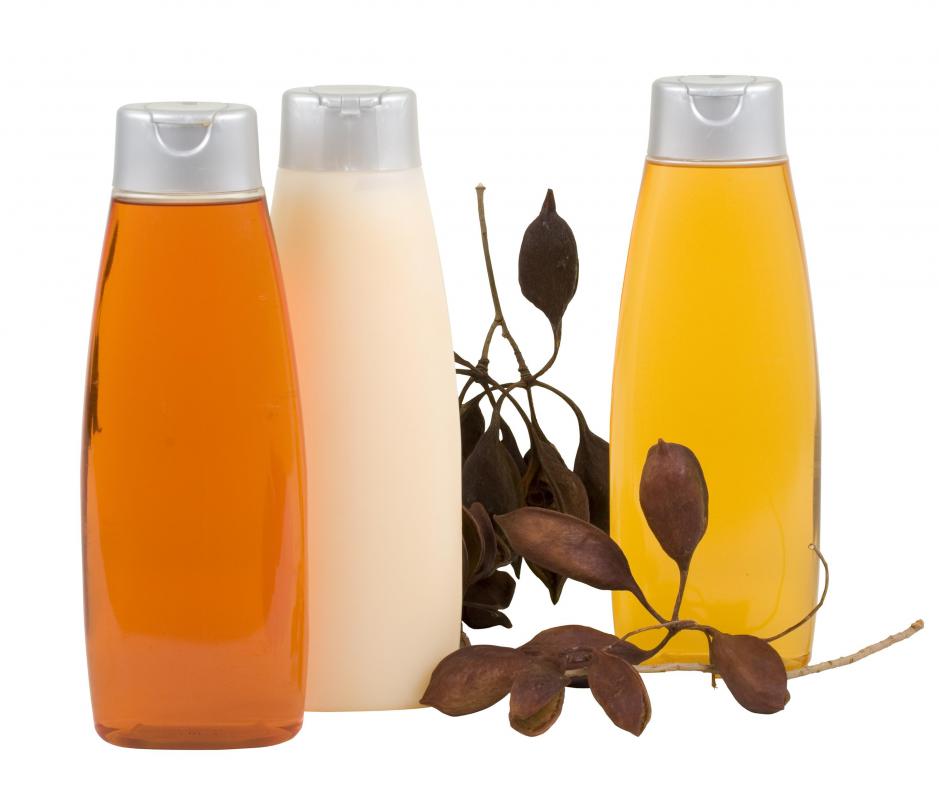At WiseGEEK, we're committed to delivering accurate, trustworthy information. Our expert-authored content is rigorously fact-checked and sourced from credible authorities. Discover how we uphold the highest standards in providing you with reliable knowledge.
What Are the Best Tips for Personal Hygiene for Children?
Personal hygiene for children is very important in both preventing the spread of germs and helping a child’s overall self-esteem. Getting children to follow a hygiene routine can be a challenge, but if parents make personal clean-up time fun, children are more likely to follow through. Turning teeth brushing, bathing, hand-washing, and other personal hygiene activities into an entertaining and rewarding experience can help children develop good life-long habits.
The right hand-washing technique is one of the most important aspects of good personal hygiene for children. Frequent, proper hand washing can help prevent the spread of bacteria and viruses. While it is important for both children and adults, children are more likely to pick up germs throughout the day, as they tend to play in dirt and share items more frequently. Proper hand washing involves soap, water, and friction. Children should rub the soap into their hands, making sure to get in between fingers and around the wrists, and continue rubbing their hands together under the water for approximately 20 seconds, or the length of the alphabet song.

Regular bathing is an important part of personal hygiene for children, and allows the most opportunity for fun. Keeping a supply of special toys for bath time is a great way to encourage children to get in the tub. There are also many different types of special bath products, including tub paints and fizzing bath bombs, which may entice children to spend a little more time getting clean. Parents should remember never to leave young children unsupervised in the tub. Young children may also need more assistance in washing their hair and body.

Parents should begin brushing their children’s teeth as soon as the first tooth comes through, and should continue to assist their children during brushing time until the children are able to follow through on their own, usually around age six to eight. Letting children pick out their own toothbrushes and toothpaste can help make brushing time more fun. Setting a timer for two minutes helps children know when they’ve spent enough time brushing. Parents should encourage children to brush their teeth in the morning, after lunch, and before bed.

Making personal hygiene for children a chance to earn rewards can also help instill good habits. Parents can create a weekly or monthly chart with all the hygiene tasks and allow children to pick out special stickers to mark off when they’ve completed the tasks. Once the chart is filled, children can earn a special reward, such as a new bath toy, extra game time, or anything else the parents deem appropriate.

Children learn through example, so it is important for them to see their parents or guardians following good hygiene routines. Books on personal hygiene for children may also be helpful, especially if the character in the story is someone or something that children can relate to. By teaching children the benefits of good hygiene at as early an age as possible, they are more likely to continue those good habits as they grow older, and eventually will not need a reward system or special entertainment to get them to comply.
AS FEATURED ON:
AS FEATURED ON:
















Discussion Comments
@clintflint - Honestly, with my nephew, it's a relief when I do explain all this kind of thing to him, because he's always wanting more attention and this gives me something to talk about. We analyze everything we do, and it helps him learn and understand why we're doing it, as well as keeping him engrossed in the task.
So, for example, washing your hands would involve a mini-question and answer session on germs and getting sick and maybe also a little bit about why it's not too big of a deal so we shouldn't go overboard with hygiene either.
Often he will ask pertinent questions and drive the conversation if I get him talking about whatever we are doing.
@browncoat - I think that's important, but I also think that you need to make sure you communicate with your kids about things as well. I was a bright kid, but I was also a bit of a day dreamer and unless someone outright explained something to me, I often wouldn't pick it up.
I can still remember being teased because I would occasionally put my clothes on backward after swimming. I just didn't notice that there was a right way to put them and I don't think it occurred to my parents that they should explain that to me.
Leading by example is the absolute best way to teach your children. If you expect them to wash their hands before dinner, you should be the first one to mention that you're going off to do it yourself. Make your actions highly visible and part of a routine and your children will expect to be doing them as well.
Post your comments